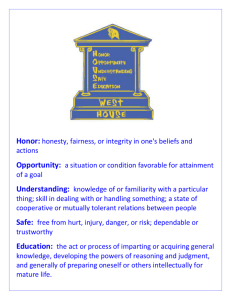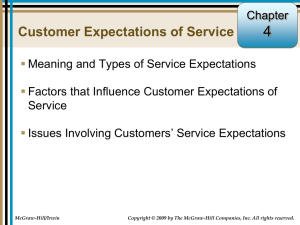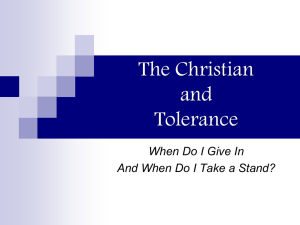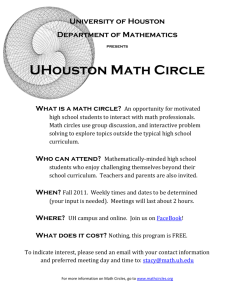Desires
advertisement
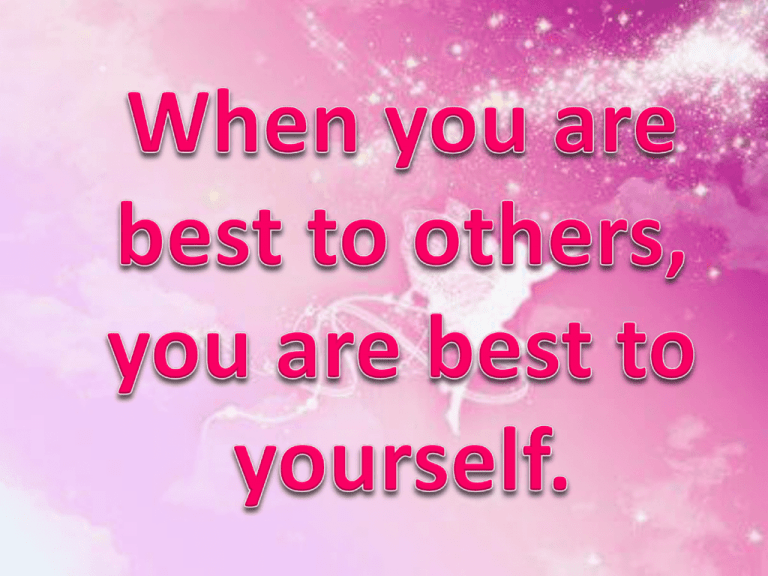
• Music (“dark” sound •Gothic Rock, •Philosophy mystical Rock, Gothic Metall) Ideas • (World is a dark place and we like it) •Desires (to look for beauty even in the world which doesn’t have it) GOTHS •Music (Rock’n’roll) • Ideas (living in groups together, accepting others as they are) •Desires (Peace, Love, Freedom) HIPPIES a set of attitude, habits or possessions associated with a particular person or group. Likes/ Dislikes Desires Believes Points to consider Attitude to different sides of life lifestyle Music Clothes Finish up the sentence: 1.The way people look at the world is … different 2.The idea of what is early and what is late … differs from country to country Choose the correct answers 3. Americans like to stand about …. from each other when they talk a) twelve to fourteen inches; b) eighteen to twenty inches; c) it doesn’t matter for them. Finish up the sentence: 4.To express the idea that everyone has his own point of view, the English say, "..." “To each his own” Is it good or bad to be different? “Nothing is good or bad ,” said Shakespeare, “ but thinking makes it so”. Declaration of Principles on Tolerance. Proclaimed and signed by the Member States of UNESCO on 16 November 1995. Article 1. – Meaning of Tolerance. Tolerance is respect, acceptance and appreciation of the rich diversity of our world’s cultures, our forms of expression and ways of being human. Tolerance, the virtue that makes Peace possible, contributes to the replacement of the culture of war by the culture of Peace. In Spanish language it means ability to recognize indistinct from all own idea or opinion. In French the relation at which it is supposed that others can think or work differently, rather than you. In English it means readiness to be tolerant, indulgent. In Chinese – to allow, to accept. In Arabian – pardon, condescension, softness, mercy, compassion, patience. In Russian – ability to suffer something or someone. respect others opinion desire to do something together goodwill understanding acceptance kindness trust unmotivated aggression misunderstanding ignoring egoism irritability Rules of tolerant communication. Try to understand what other people speak about. Assert the opinion tactfully. Search for the best arguments. Be fair, ready to recognize correctness of another person. Try to take into account the opinions of other people. Your team is loosing … you break things oyou support it right to the end. Your team wins: it’s thanks to you; oyou say “we play well” You don’t like someone in the team: you act as though he doesn’t exist. oyou pass him the ball when you can. Your team is loosing … oyou congratulate the winners; you refuse to shake their hands. You miss an easy goal you fell useless oyou’ll score next time. A beginner plays badly… oyou remember you were a beginner once you want him or her replace The referee whistles… oyou accept the rules of the game you argue anyway You feel violent… you hit someone oyou kick a ball You have 8 circles: Well done! You are very tolerant! You have character, you are a good sport and you can keep yourself and others from being aggressive. Tell your friends how you do it! Between 7 and 3 circles: You aren’t very tolerant! You can be touchy but you’re brave and you can improve. Start practicing now! 2 circles or less: Oh dear! You aren’t tolerant! If you respected yourself and others a bit more, you’d be much happier. Give it a try! When you are best to others, you are best to yourself.


